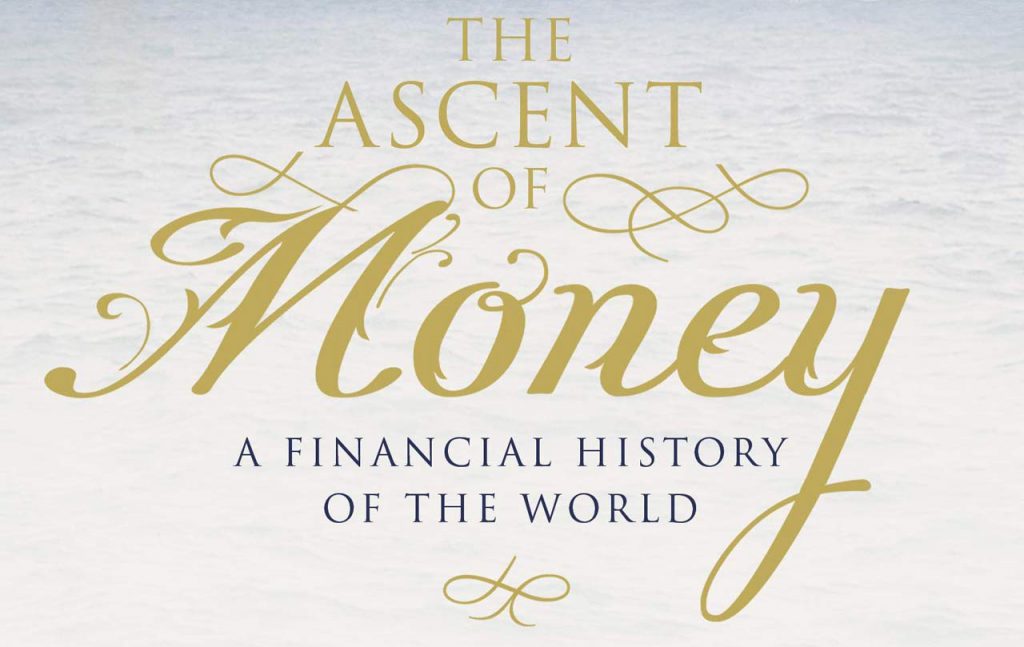The Ascent of Money episode 1: From Shylock’s pound of flesh to the loan sharks of Glasgow, from the ‘promises to pay’ on Babylonian clay tablets to the Medici banking system, Professor Niall Ferguson explains the origins of credit and debt and why credit networks are indispensable to any civilisation.
In this six-part documentary respected author, journalist and lecturer Professor Niall Ferguson examines the dynamic role of money as he takes you on an epic tour of the financial world. A professor in History and Business Administration at Harvard University, as well as an author of numerous books and a commentator on contemporary politics and economics, Ferguson explains how finance rose to play such a terrifyingly dominant role in all our lives. This beautifully-shot documentary covers a broad spectrum of economic history from the 14th Century right up to the present day. But are you in on the secret? Do you really understand what causes a bank run, an inflationary meltdown or a stock market crash? Can you tell a sub-prime from a prime loan? Only with this historical perspective can one understand the essential truth about finance.
The Ascent of Money episode 1
Money is any item or verifiable record that is generally accepted as payment for goods and services and repayment of debts, such as taxes, in a particular country or socio-economic context. The main functions of money are distinguished as: a medium of exchange, a unit of account, a store of value and sometimes, a standard of deferred payment. Any item or verifiable record that fulfils these functions can be considered as money.
Money is historically an emergent market phenomenon establishing a commodity money, but nearly all contemporary money systems are based on fiat money. Fiat money, like any check or note of debt, is without use value as a physical commodity. It derives its value by being declared by a government to be legal tender; that is, it must be accepted as a form of payment within the boundaries of the country, for “all debts, public and private”. Counterfeit money can cause good money to lose its value.
The money supply of a country consists of currency (banknotes and coins) and, depending on the particular definition used, one or more types of bank money (the balances held in checking accounts, savings accounts, and other types of bank accounts). Bank money, which consists only of records (mostly computerized in modern banking), forms by far the largest part of broad money in developed countries.
Niall Ferguson
Niall Campbell Ferguson is a Scottish historian based in the United States who is the Milbank Family Senior Fellow at the Hoover Institution at Stanford University and a Senior Faculty Fellow at the Belfer Center for Science and International Affairs at Harvard University. Previously, he was a professor at Harvard, the London School of Economics and New York University, a visiting professor at the UK New College of the Humanities, and a senior research fellow at Jesus College, Oxford, England.
Ferguson writes and lectures on international history, economic and financial history and British and American imperialism. He holds positive views concerning the British Empire. He once ironically called himself “a fully paid-up member of the neo-imperialist gang” following the 2003 invasion of Iraq. In 2004, he was one of Time magazine’s 100 most influential people in the world. Ferguson has written and presented numerous television documentary series, including The Ascent of Money, which won an International Emmy award for Best Documentary in 2009.
Ferguson has been a contributing editor for Bloomberg Television and a columnist for Newsweek. He began writing a twice-a-month column for Bloomberg Opinion in June 2020.
